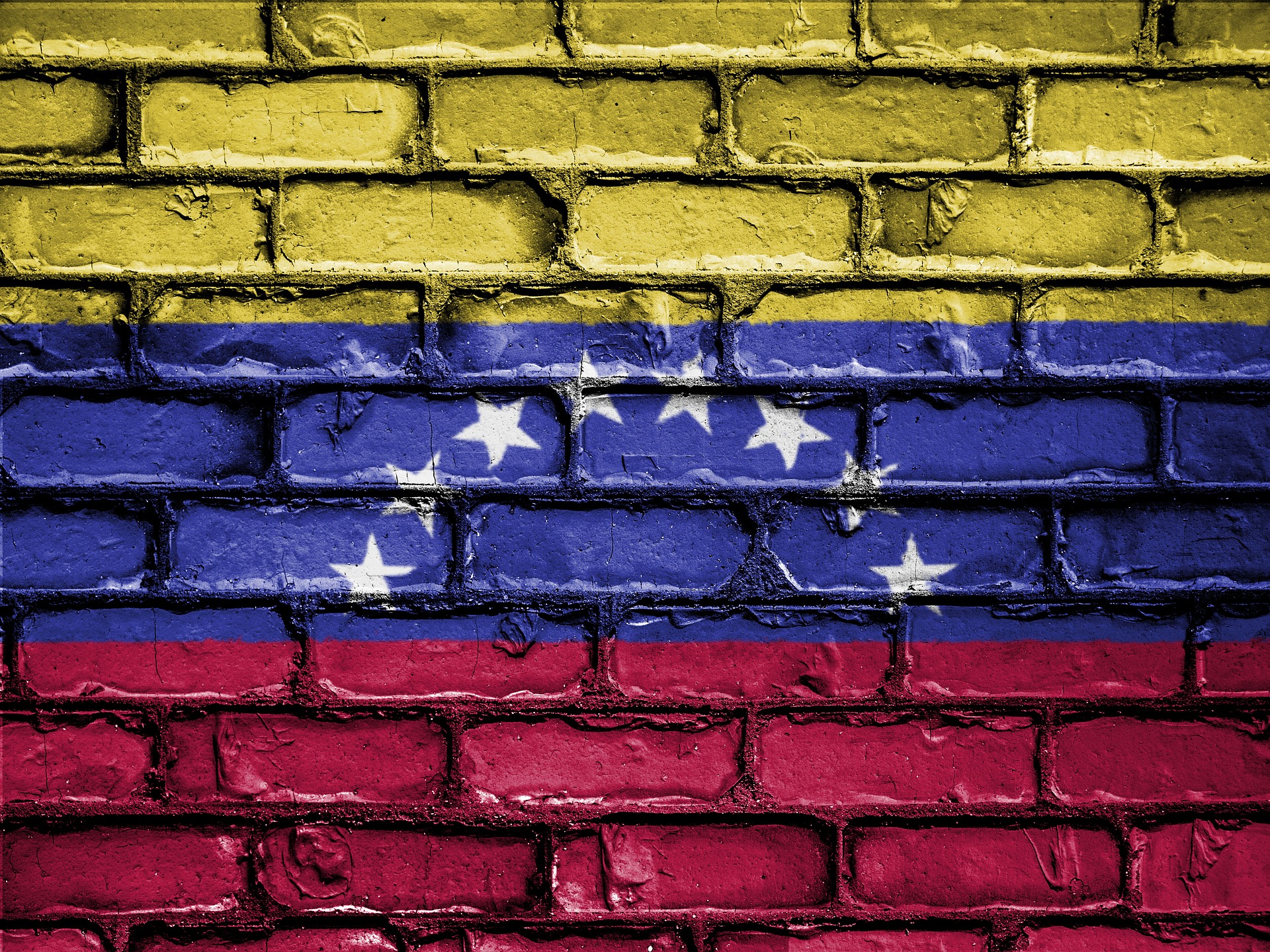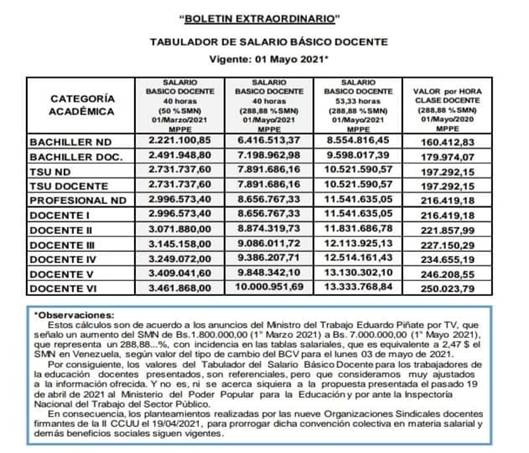The Silent Privatization of Education in Venezuela || La Silenciosa Privatización Educativa en Venezuela [Eng/Esp]
La versión en español se encuentra debajo
My desire in creating this post is to make visible a nascent phenomenon, which goes unnoticed in the shadow of the (necessary) salary struggles of teachers at all levels of education in my country; with no intention of creating any kind of controversy, or discussions of any kind.

Source
In Venezuela, the work of educators has been undervalued for decades despite the important work that it has represented for our constitution as a society and nation; for many years governments and governments have passed without providing a real vindication for these professionals, not only in the economic sense, but moral and human.
Something that has distinguished the history of teaching in Venezuela has been a very low salary in comparison with other professional profiles (despite the fact that this activity implies great responsibility and work; that it belongs to the group of "long careers" and that many teachers continue their training through advanced studies for years).
Another mistreating and almost traditional custom of the Venezuelan State towards teachers has been the sentence of an unpaid job for years while waiting for a position; a situation that has improved lately -although for the wrong reasons-, due to the shortage of teachers in service that the country is currently experiencing.
Although some may find it hard to admit it, these have not been exclusive actions of the current Venezuelan government, as I said before, the disdain towards the teaching profession by those who regulate educational policies has been present both in "the fourth" and in "the fifth" republic. But then, why has the teaching profession been so economically and morally hit in the last years as to have to resort to double or triple shifts of classes, piecework or the total abandonment of their activities as trainers? or, if this has always been the reality of teachers, why at this moment it is impossible to subsist with a teacher's salary, when in other times it was enough to live "comfortably"? It is a valid question to ask!
Well, speaking of exclusivity, this reality does not concern only teachers, but all the productive sectors of the country, and especially the entire public administration. And it is due to the systematic crisis we are going through socially, economically and politically, which has resulted in an inflationary chaos, and which plunges us into a growing structural violence.
THE CRISIS HAS MADE THE "TRADITIONAL" WAY OF MANAGING EDUCATION UNSUSTAINABLE FOR EDUCATORS. Those who, without the slightest intention on the part of the authorities to create a real social security for the teacher, continue to receive a miserable salary, living in total neglect of their personal and classroom needs.

Source
These would be some concrete realities that interest us now to understand the Silent Privatization of our Educational System:.
The salary of the highest level teacher in Venezuela today is equivalent to less than five dollars and, in turn, a corn flour (basic product in the Venezuelan diet) costs on average $0.80.
Many teachers have had to abandon the work for which they were trained in order to dedicate themselves to activities that generate greater economic productivity.
This situation has been the cause of much physical and psychological wear and tear, which reduces the willingness to work of those who remain in their positions, and decreases the overall quality of education.
Strikes and work stoppages in public education have caused a great loss of learning time for students at all levels and modalities.
Most of the teachers recently graduated from the different pedagogical institutions are not incorporated to the educational work.
There is a shortage of active teachers in all areas.
Now, these realities are creating the following conditions:
Parents concerned about the education of their sons and daughters, make the effort (in many cases superhuman) to enroll and maintain their children in private institutions in order to avoid constant stoppages in their learning process.
Teachers who withdraw from their jobs in public schools, high schools and universities because they receive an almost symbolic remuneration for a job that takes up a lot of time and does not allow them to cover their basic needs.
Decrease in public education supply due to lack of personnel or material conditions.
Teachers opting and accessing to work spaces in private schools and institutions that do not adjust to the tabulators of the Ministry of Education, surpassing them, offering their workers much more profitable job offers.
Now it is obvious, isn't it, in a country where public education is exhibited as a flag, and in which many of us have had the opportunity to be educated up to the higher levels of education for free. It is not the issue at this time to question whether private instruction is better than public, or vice versa; what is really critical here, is the way and the reasons why this change is being generated, in a continued deterioration of the quality of life of our teachers and the educational quality of our people.
Hola gente bonita de #Hive ♥ el día de hoy quiero compartirles un contenido de análisis relacionado con la situación Educativa que, aunque está cargada de un trasfondo mucho más antiguo, se vive en #Venezuela aparentemente desde el 2016 hasta el día de hoy: La Privatización Silenciosa. Mi deseo al crear este post es visibilizar un fenómeno naciente, que pasa desapercibido a la sombra de las luchas salariales (necesarias) de los y las maestras de todos los niveles de educación en mi país; sin intención de crear ningún tipo de controversia, ni discusiones de ninguna índole. En Venezuela, el trabajo de los y las educadoras ha sido sub-valorado durante décadas a pesar de la importante labor que el mismo ha representado para nuestra constitución como sociedad y nación; por largos años han pasado gobiernos y gobiernos sin brindar una verdadera reivindicación para estos profesionales, no sólo en el sentido económico, sino moral y humano. Algo que ha distinguido la historia de la docencia en Venezuela ha sido un sueldo muy bajo en comparación con otros perfiles profesionales (a pesar de que dicha actividad implica una gran responsabilidad y trabajo; que pertenece al grupo de "carreras largas" y que muchos maestros continúan su formación a través de estudios avanzados durante años). Otra costumbre maltratadora y casi tradicional de parte del Estado venezolano hacia los/las docentes, ha sido la sentencia de un trabajo no remunerado durante años a la espera de un cargo; situación que ha mejorado últimamente -aunque por las razones incorrectas-, debido a la escasez de profesores/as en servicio que vive actualmente el país. Aunque algunos les cueste admitirlo, estas no han sido acciones exclusivas del gobierno actual venezolano, como ya lo decía, el desprecio hacia el ejercicio docente por parte de los que regulan las políticas educativas ha estado presente tanto en "la cuarta" como en "la quinta" república. Pero entonces ¿por qué el gremio docente se ha visto tan golpeado económica y moralmente en los últimos años como para tener que recurrir a dobles o triples jornadas de clases, trabajos a destajo o el abandono total de sus actividades como formadores? o, si esta ha sido siempre la realidad de los maestros, ¿por qué en este momento es imposible subsistir con un sueldo de profesor, cuando en otras épocas era suficiente para vivir "cómodamente"? ¡Es válido preguntarse! Pues, hablando de exclusividad, esta realidad no atañe sólo a profesores y profesoras, sino a todos los sectores productivos del país, y especialmente a toda la administración pública. Y obedece a la crisis sistemática que atravesamos social, económica y políticamente, que ha resultado en un caos inflacionario, y que nos sumerge en una violencia estructural creciente. LA CRISIS HA HECHO QUE LA FORMA "TRADICIONAL" DE GESTIONAR LA EDUCACIÓN SEA INSOSTENIBLE PARA EL EDUCADOR Y LA EDUCADORA. Quienes, sin contar con la menor intención por parte de las autoridades para crear una verdadera seguridad social para el maestro/maestra, siguen cobrando un salario miserable, viviendo la desatención total de sus necesidades personales y del aula. Estas serían algunas realidades concretas que nos interesan ahora para comprender la Privatización Silenciosa de nuestro Sistema Educativo: El sueldo del docente de más alto nivel en Venezuela el día de hoy equivale a menos de cinco dólares y, a su vez, una harina de maíz (producto básico en la dieta del venezolano) cuesta en promedio $0.80 Muchos y muchas docentes se han visto en la necesidad de abandonar el trabajo para el cual se formaron, para dedicarse a actividades que generen mayor productividad económica. Esta situación ha sido causa de mucho desgaste físico y psicológico, lo que reduce la disposición hacia el trabajo de aquellos que permanecen en sus cargos, y disminuye la calidad educativa en general. Las huelgas y paros de la educación pública han causado una gran perdida de tiempo de aprendizaje para los estudiantes de todos los niveles y modalidades. La mayoría de los docentes recién egresados de las diferentes instituciones pedagógicas no se incorporan al trabajo educativo. Escasean los docentes activos en todas las áreas. Ahora, estas realidades están creando la siguientes condiciones: Padres y madres preocupados por la educación de sus hijos e hijas, hacen el esfuerzo (en muchos casos sobrehumano) por inscribir y mantener a sus representados en instituciones privadas para, de ese modo, evitar los paros constantes en su proceso aprendizaje. Docentes que se retiran de sus puestos de trabajo en escuelas, liceos y universidades públicas por recibir una remuneración casi simbólica por una labor que ocupa mucho tiempo y que no les permite cubrir sus necesidades básicas. Disminución de la oferta educativa pública por falta de personal o de condiciones materiales. Docentes optando y accediendo a espacios de trabajo en Colegios e Instituciones privadas que no se ajustan a los tabuladores del Ministerio de Educación, los superan, ofreciendo a sus trabajadores ofertas laborales mucho más rentables. ¡Ahora salta a la vista, ¿verdad?!, en un país donde la educación pública se exhibe como bandera, y en el que realmente muchos y muchas hemos tenido la oportunidad de formarnos hasta los niveles superiores de la educación de forma gratuita. No es el tema en este momento cuestionarnos si la instrucción privada es mejor que la pública, o viceversa; lo realmente crítico aquí, es el modo y las razones por las que este cambio se está generando, en un deterioro continuado de la calidad de vida de nuestros maestros/maestras y de la calidad educativa de nuestra gente.
For now, as with almost everything, I think not, even more so if we take into consideration all the challenges that the pandemic has imposed on us worldwide and add them to our particularities. But here we are experts in finding ways to continue.... So much remains to be done!

Fuente
Fuente
Por ahora, como con casi todo, creo que no, más aún si tomamos en consideración todos los retos que ha nivel mundial nos ha impuesto la pandemia y los sumamos a nuestras particularidades. Pero aquí somos expertos en conseguir las maneras de continuar... ¡Queda mucho por hacer!
Muy buena reflexión. A eso le sumo el hecho de que las universidades públicas se están quedando sin profesores, las renuncias son el pan nuestro e cada día y, aunque siguen a puertas abiertas, muchos cursos queda sin docente asignado. Cada día la profesión docente es menos atractiva para los bachilleres, y muchos de los que están inscritos están desertando. Si la situación no mejora, en un par de décadas nos quedaremos sin profesores
Excelent overview. As you may look into a classic on Latin American Education and find a completely different perspective. There has been a beautiful collective reading of a Ivan Illich presentation from 1968 you may find at deschooling.me or directly at https://www.instagram.com/tv/CImSHoJH9qZ/ and
@tipu curate !invest_vote !ENGAGE 1
Upvoted 👌 (Mana: 11/22) Liquid rewards.
ENGAGEtokens.